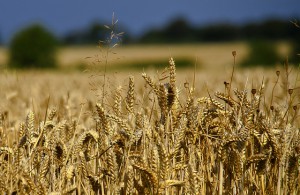Farmer participation in breeding programs helps select locally adapted cultivars
Plant breeding programs have traditionally been developed in response to the needs of large-scale industrial agriculture with a focus on yield improvement, the ability to stand up to storage and transport, and appearance. However, organic growers deal with unique sets of challenges due to the fundamental differences in the organic agricultural system. As a result, organic plant breeding programs focus on breeding for characteristics including adaptation to local climate or environmental variation, resistance against pests and diseases and weed tolerance. Unfortunately, because many farming regions are quite variable, specific cultivars are not always available for unique or stressful growing regions. Now a new study has demonstrated that farmer participatory breeding programs can be successful for selection of best performing cultivars in growing environments that are underserved by traditional plant breeding programs. In a pilot study, plant breeders gave participating farmers sets of seeds from three different populations of a spring wheat cultivar. Farmers planted the seeds and each year selected seeds from the best performing populations to be planted the next year. After three years of selection, researchers characterized the performance of the farmer-selected wheat to that of the conventionally developed cultivars grown in experimental trials in the area. They found that the populations selected by the farmers had higher yields, grew earlier, were taller and had fewer weeds compared to the conventionally selected cultivar.




